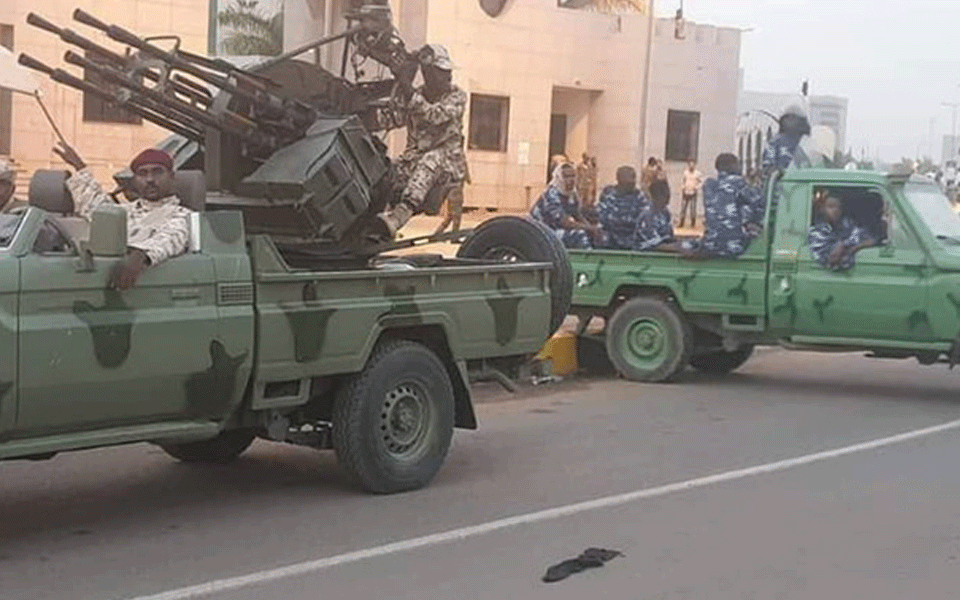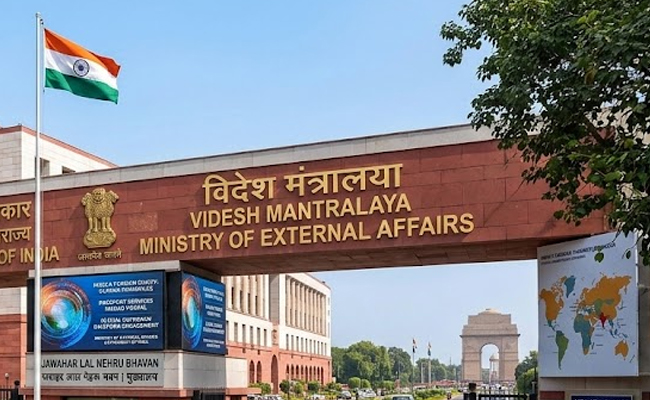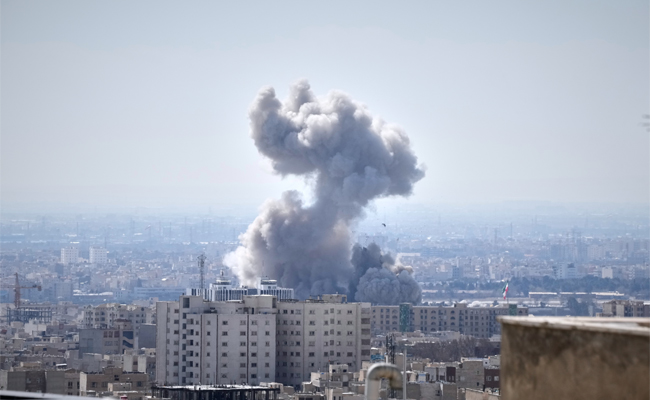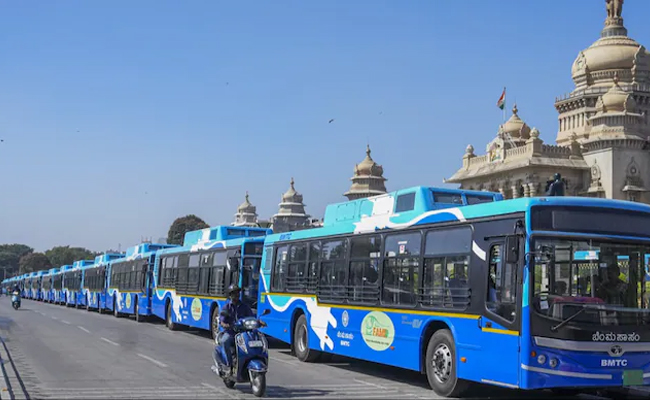Khartoum: Sudan's military rulers moved Monday to break up a weeks-long sit-in outside Khartoum's army headquarters, leaving at least nine protesters dead, a doctors' committee said as gunfire was heard echoing from the site.
Heavily armed security forces in pick-up trucks mounted with machine guns were deployed in large numbers all around the capital, while gunfire was heard from the protest site by an AFP journalist.
The United States and Britain called for an end to the crackdown on demonstrators, who want the generals behind the overthrow of veteran president Omar al-Bashir to hand over to civilian rule.
The death toll "from the massacre today has risen to nine martyrs," the Central Committee of Sudanese Doctors, which is close to the protesters, wrote on Facebook.
It also reported a "large number of critical casualties" and called for "urgent support" from the International Committee of the Red Cross and other humanitarian organisations to help the wounded.
The military council has denied multiple reports of their forces violently dispersing the sit-in in front of army headquarters.
"Now an attempt is taking place to disperse the sit-in at the headquarters of the people's armed forces by force by the military council," said the Sudanese Professionals Association (SPA), the group which spearheaded nationwide protests that started in December.
The SPA said it amounted to a "bloody massacre" and called on Sudanese to take part in "total civil disobedience" to topple the military council.
The doctors' committee said forces were also opening fire inside the city's East Nile Hospital and "chasing peaceful protesters". It said another hospital near the site of the sit-in was surrounded and volunteers were prevented from reaching it.
Rallies against Bashir's authoritarian, three-decade rule led to his ouster in April, but protesters have remained outside the army headquarters calling on the generals to cede power to a transitional authority.
Near the demonstration site, a witness living in the Burri neighbourhood said he could "hear the sound of gunfire and I see a plume of smoke rising from the area of the sit-in."
Another resident of the area, in east Khartoum, said he had seen forces in "police uniform" trying to expel the demonstrators. The military council "did not disperse the sit-in by force," their spokesman said.
"The tents are there, and the youth are moving freely," Shamseddine Kabbashi told Sky News Arabia. Britain's ambassador to Khartoum, Irfan Siddiq, said he had heard "heavy gunfire" from his residence.
"Extremely concerned by... reports that Sudanese security forces are attacking the protest sit-in site resulting in casualties. No excuse for any such attack. This. Must. Stop. Now," he wrote on Twitter.
The US embassy in Khartoum said "security forces' attacks against protesters and other civilians is wrong and must stop."
"Responsibility falls on the TMC. The TMC cannot responsibly lead the people of Sudan," it added referring to the transitional military council.
The Alliance for Freedom and Change, the umbrella group of the protest movement, urged "peaceful marches and rallies" nationwide and for barricades to be put up including in the capital.
Protesters had already set about building a brick barricade and had set tyres and tree trunks alight on Street 60 -- one of the main streets in the capital.
The SPA had said on Saturday that it had reason to believe the military council was "planning and working to end the peaceful sit-in at the headquarters with excessive force and violence" after three people were killed in incidents on the fringes of the demonstration last week.
Negotiations between protest leaders and the ruling military council have broken down, as the two sides have failed to agree on whether a planned transitional body would be headed by a civilian or a military figure.
Let the Truth be known. If you read VB and like VB, please be a VB Supporter and Help us deliver the Truth to one and all.
New Delhi (PTI): The Ministry of External Affairs (MEA) has set up a control room to assist those affected by the escalating crisis in West Asia.
The MEA has said almost one crore Indian citizens live in West Asia and their safety and well-being is of "utmost priority" for New Delhi.
As the Iran-US conflict widened, the Indian embassy in Iran moved hundreds of Indian students from the Iranian capital of Tehran to safer locations.
"A Control Room has been set up in the Ministry of External Affairs in view of the current situation in West Asia and the Gulf region," the MEA said on Wednesday.
"The Control Room can be contacted from 9 am to 9 pm at: 1800118797 (Toll Free) +91 11 2301 2113, +91 11 2301 4104, +91 11 2301 7905," it added.
The US launched military strikes on Iran on February 28, killing Iranian Supreme leader Ali Khamenei.
Following the military offensive, Iran has carried out a wave of attacks mainly targeting Israel and American military bases in several Gulf countries, including the UAE, Bahrain, Kuwait, Jordan and Saudi Arabia.
The MEA on Tuesday noted that almost one crore Indian citizens live and work in the Gulf region, and their "safety and well-being is of utmost priority."
"We cannot be impervious to any development that negatively affects them," it said.
The MEA said New Delhi will continue to closely monitor the evolving situation and take relevant decisions in the national interest, adding it is in touch with the governments in the region as well as other key partners.
A Special Control Room has been set up in the Ministry of External Affairs in view of the current situation in West Asia and the Gulf region. Details are as below ⬇️
— Randhir Jaiswal (@MEAIndia) March 4, 2026
🔗 https://t.co/nK3d6SY9Pa pic.twitter.com/v2EhUI5B1x




